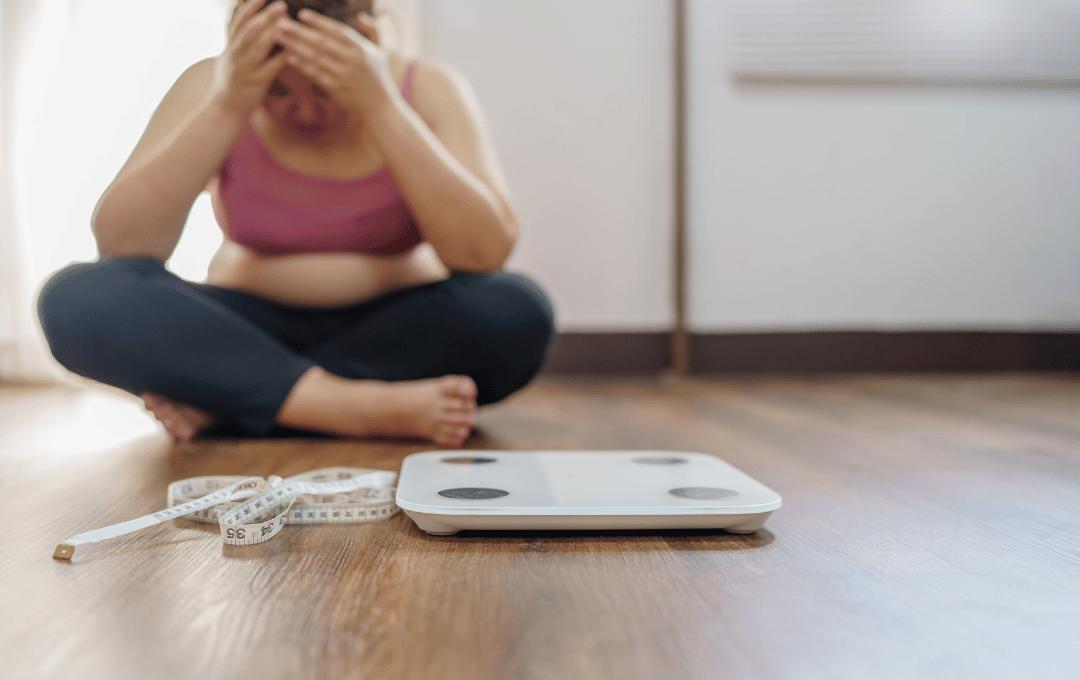
It can be frustrating to notice unexplained changes in your body, especially an increase in your waistline. Many people are surprised to learn that fibroids can cause unexpected weight gain. Fibroids and weight gain can impact the way the body looks and feels, whether due to large fibroids causing bloating or hormone-related changes.
Here is what you need to know about how fibroids might cause weight gain and what to look for if you’re noticing changes. Understanding the connection between uterine fibroids and weight gain can help you recognize symptoms and seek early diagnosis.
The Three Main Ways Fibroids Lead to Weight Gain
Weight gain related to fibroids is not just one issue; it’s the result of three distinct mechanisms. As fibroids grow, they can impact your body through sheer physical size, internal pressure, and hormonal shifts. Here’s a closer look at the key factors:
The Physical Weight of Fibroids
The most direct cause of weight gain is the fibroid’s physical mass. Fibroid tumors can range in size from a tiny seed to a grapefruit, and in severe cases, even larger. A single large fibroid can weigh several pounds, causing visible abdominal distension – a phenomenon often called a “fibroid belly”.
The chart below illustrates how quickly a fibroid mass can add up:
| How much does a 5 cm fibroid weigh? | A fibroid typically weighs less than half a pound at this size, similar to an avocado. |
| How much does a 7 cm fibroid weigh? | Weighing about 1 pound, this size is comparable to an orange. |
| How much does a 10 cm fibroid weigh? | This size may weigh around 1.5-2 pounds, roughly the size of a grapefruit. |
| How much does a 12 cm fibroid weigh? | A fibroid of this size can weigh approximately 2-3 pounds, similar to a small watermelon. |
Bloating and Fluid Retention
Weight gain from fibroids is often tied to the way these growths can press on internal organs, leading to bloating or water retention. The pressure often leads to persistent bloating, gas and water retention, symptoms that can fluctuate during the menstrual cycle.
Hormonal Changes
Fibroid growth is closely influenced by increased estrogen and progesterone levels. These hormonal fluctuations, whether caused by the fibroids themselves or occurring naturally, such as near menopause, can affect your weight. Shifts in estrogen can impact metabolism, contribute to fluid retention, and alter your appetite.
What Is Fibroid Weight Gain? Recognizing the Difference
It’s easy to mistake fibroid-related weight gain for typical fat gain, but there are key distinctions. Understanding where the weight is gained and the accompanying symptoms can help you differentiate a “fibroid belly” from just regular weight gain.
Common Areas of Fibroid Weight Gain
One of the specific ways fibroids and the accompanying weight gain differ from regular weight gain is in their occurrence and degree of fluctuation.
Some common areas of weight gain from fibroids include:
- Waist size
- Lower belly, also referred to as a noticeable “fibroid belly”
- The midsection
Unlike typical fat, fibroids cause weight gain that is often localized to the abdomen. It may fluctuate throughout your cycle and occur alongside other symptoms, such as heavy bleeding.
Accompanying Symptoms
One way to determine if fibroids are causing weight gain is by observing other symptoms that occur along with it.
Some potential symptoms that can accompany fibroids and weight gain include:
- Heavy or prolonged menstrual bleeding
- Pelvic pressure or discomfort
- Frequent urination, constipation, or back pain
- Fatigue or anemia from blood loss
Our symptom checker can help identify whether these signs align with fibroids and determine if it’s time to consult a fibroid specialist.
When to Worry About Fibroids and Weight Gain
Fibroid symptoms vary, but weight gain or abdominal swelling may require medical intervention if it begins to interfere with daily life.
Daily Life Impact
Fibroids can cause symptoms that impact daily life and make it harder to lose weight. For example, heavy bleeding and anemia from fibroids reduce energy levels, making physical activity more difficult and leading to gradual weight gain.
Additional challenges from fibroids and weight gain may include:
- Difficulty exercising due to pelvic pressure
- Bending, sitting, or lying flat might become uncomfortable
- Increased fatigue or heaviness
- Difficulty fitting into clothes or a negative impact on body image
When fibroids begin making it challenging to get through the day, consulting a fibroid specialist can help confirm a diagnosis and receive the proper treatment.
When to Seek Medical Help
Weight gain due to fibroids can become more difficult and disruptive, and there are signs to watch out for to determine whether it’s time to consult a medical professional.
Medical evaluation is recommended if any of the following signs are present:
- Rapid or unexplained increase in abdominal size
- Significant change in menstrual flow or cycle length
- Persistent pelvic pain, pressure, or bloating
- Symptoms affecting the bladder, bowels, or daily comfort
A fibroid specialist can provide a diagnosis that confirms whether fibroids cause symptoms. After a diagnosis, the specialist can create a personalized treatment plan that helps relieve symptoms.
Call Now to Meet With a Fibroid Specialist
Can Treating Fibroids Help with Weight Gain?
Treating fibroids can help with managing weight gain, as it often improves symptoms. Shrinking or removing fibroids can relieve bloating and pelvic pressure, allowing the uterus to return to a more typical size.
When it comes to fibroids and weight gain, treatment can help by:
- Reducing abdominal swelling
- Improving cycle regularity
- Relieving pelvic pain and pressure
- Potentially reversing weight changes associated with fibroid mass
One minimally invasive treatment option to help reduce fibroid mass, pressure, and improve overall symptoms is uterine fibroid embolization (UFE).
Non-Surgical Fibroid Treatment Options
For non-surgical options that treat uterine fibroids and weight gain, there are a couple of options. Hormonal therapy can temporarily slow fibroid growth, but this is only a short-term solution.
A more effective treatment is uterine fibroid embolization (UFE). This non-surgical fibroid procedure shrinks fibroids by cutting off their blood supply. This treatment is often preferred since it offers lasting symptom relief while preserving the uterus.
Finding Relief at USA Fibroid Centers
Don’t let the discomfort, physical symptoms, and body image issues from uterine fibroids and weight gain take control of your life. If you are experiencing persistent abdominal swelling, heavy periods, or other classic fibroid symptoms, it’s time to seek a diagnosis.
USA Fibroid Centers offers reliable diagnostic evaluations and non-surgical treatments for fibroids, including UFE. Our expert specialists work with patients to create personalized treatment plans that manage their symptoms at any of our convenient clinics nationwide.
Don’t let the discomfort from fibroids and weight gain take control of your life. Schedule a consultation with one of our USA Fibroid Centers specialists today.
FAQs: Fibroids and Weight Gain
Can small fibroids cause weight gain, or is it only large ones?
Small fibroids typically don’t cause noticeable weight gain, but can continue to grow over time into larger fibroids, causing symptoms such as weight gain, bloating, or abdominal fullness.
Do fibroids affect metabolism or fat storage?
Fibroids can affect metabolism indirectly by causing hormonal imbalances that disrupt appetite and fat storage.
Do fibroids always lead to weight gain?
Fibroids don’t always lead to weight gain. However, large or multiple fibroids can enlarge the uterus, contributing to visible bloating or an increase in abdominal bulging.




